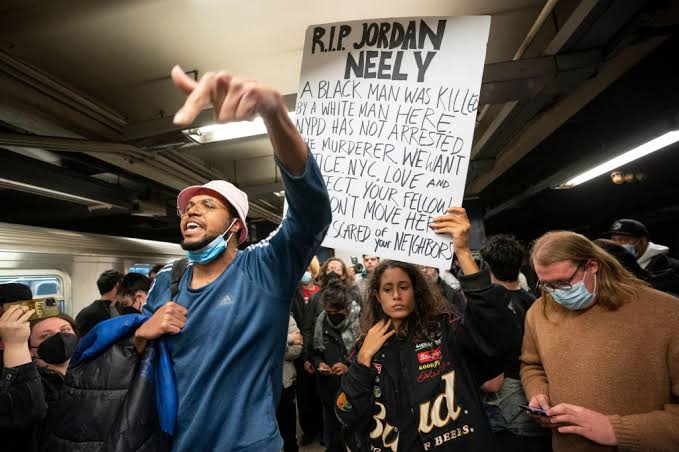A 30-year-old Black man named Jordan Neely was tragically killed on a New York City subway train by a white man who identified himself as a “Marine.” According to NewsOne, Neely was placed in a chokehold and strangled for 15 minutes by the 24-year-old assailant, who has not yet been identified.
“The man got on the subway car and began to say a somewhat aggressive speech, saying he was hungry, he was thirsty, that he didn’t care about anything, he didn’t care about going to jail, he didn’t care that he gets a big life sentence,” said Juan Alberto Vazquez, who was in the subway car and recording part of what happened afterward. “That ‘It doesn’t even matter if I died.’”
Eyewitnesses reported that Neely boarded the F train on Monday afternoon and began yelling and speaking aggressively. The assailant, who was also on the train, confronted Neely and placed him in a chokehold. Despite pleas from other passengers to release Neely, the assailant continued to strangle him until he was unresponsive.

After a period of time, the unnamed 24-year-old approached Neely from behind and applied the chokehold despite that fact that Neely didn’t attack or make physical contact with anyone during his rant.
The NYPD took the vigilante passenger in for questioning but he was released without charges as the investigation allegedly continues.
A video of the incident taken by Vazquez and for Vazquez, he now says that he has mixed feelings about what he witnessed, via NYTimes:
“I am confused now because I’m not sure how to think about what the young man did,” he said. “He was trying to help.”
Mr. Vazquez said at the time he did not believe the 30-year-old man could die.
“None of us were thinking that,” he said. “He was moving and he was defending himself.”
The killing has once again raised concerns about the prevalence of violence against Black people in the United States and the need for greater accountability and reform in law enforcement. Advocates are calling for justice for Neely and for an end to the systemic racism and violence that disproportionately affects Black communities.

